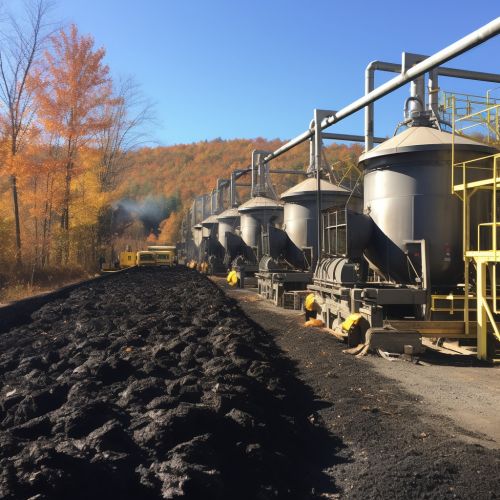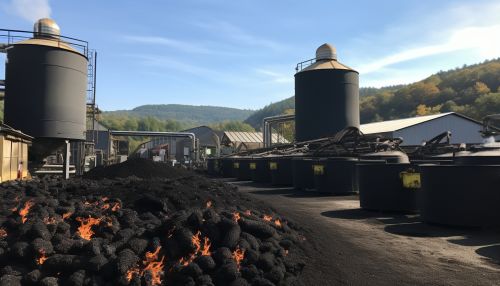The Science of Biochar and Soil Fertility
Introduction
Biochar is a type of charcoal that is produced by pyrolysis of biomass. It is used as a soil amendment for both carbon sequestration and soil health benefits. Biochar is a stable solid, rich in carbon and can endure in soil for thousands of years. Biochar is an important tool in the fight against climate change, as it has the potential to help mitigate climate change by reducing greenhouse gas emissions. The process of biochar production also generates energy and can reduce waste.
Production of Biochar
The production of biochar involves the thermal decomposition of organic material in the absence of oxygen, a process known as pyrolysis. This process can be carried out at various temperatures, with the resulting biochar exhibiting different characteristics depending on the specific conditions of the pyrolysis. The feedstock used for biochar production can be virtually any organic material, including agricultural waste, forestry waste, and even municipal solid waste.


Biochar and Soil Fertility
Biochar can have a significant impact on soil fertility. It can improve the physical properties of soil, including water retention, nutrient retention, and overall soil structure. Biochar can also interact with soil organisms and impact the soil microbial community, potentially leading to improved nutrient cycling and other benefits. The exact impacts of biochar on soil fertility can vary depending on the specific characteristics of the biochar and the soil, as well as the specific management practices used.
Biochar and Carbon Sequestration
One of the most significant benefits of biochar is its potential for carbon sequestration. Biochar is a stable form of carbon that can remain in soil for hundreds or even thousands of years. This means that biochar can be used to sequester carbon from the atmosphere, helping to mitigate climate change. The carbon sequestration potential of biochar can vary depending on the specific characteristics of the biochar and the soil, as well as the specific management practices used.
Biochar and Soil Microorganisms
Biochar can have a significant impact on soil microorganisms. It can provide a habitat for microorganisms, potentially leading to increased microbial activity and diversity. Biochar can also impact the activity of specific groups of microorganisms, potentially influencing nutrient cycling and other soil processes. The exact impacts of biochar on soil microorganisms can vary depending on the specific characteristics of the biochar and the soil, as well as the specific management practices used.
Biochar and Nutrient Cycling
Biochar can impact nutrient cycling in soil. It can increase the retention of nutrients in soil, potentially reducing nutrient leaching and improving nutrient availability for plants. Biochar can also interact with soil microorganisms and impact their activity, potentially leading to improved nutrient cycling. The exact impacts of biochar on nutrient cycling can vary depending on the specific characteristics of the biochar and the soil, as well as the specific management practices used.
Biochar and Soil Water Retention
Biochar can improve the water retention capacity of soil. It can increase the amount of water that soil can hold, potentially reducing water stress for plants and improving plant growth. The exact impacts of biochar on soil water retention can vary depending on the specific characteristics of the biochar and the soil, as well as the specific management practices used.
Biochar and Soil pH
Biochar can impact the pH of soil. It can increase the pH of acidic soils, potentially improving soil fertility and plant growth. The exact impacts of biochar on soil pH can vary depending on the specific characteristics of the biochar and the soil, as well as the specific management practices used.
Future Research and Applications
While the benefits of biochar are well-documented, there is still much to learn about this material and its interactions with soil. Future research will likely focus on understanding the specific mechanisms by which biochar impacts soil fertility, as well as optimizing biochar production and application methods. There is also potential for new applications of biochar, such as in the remediation of contaminated soils.
